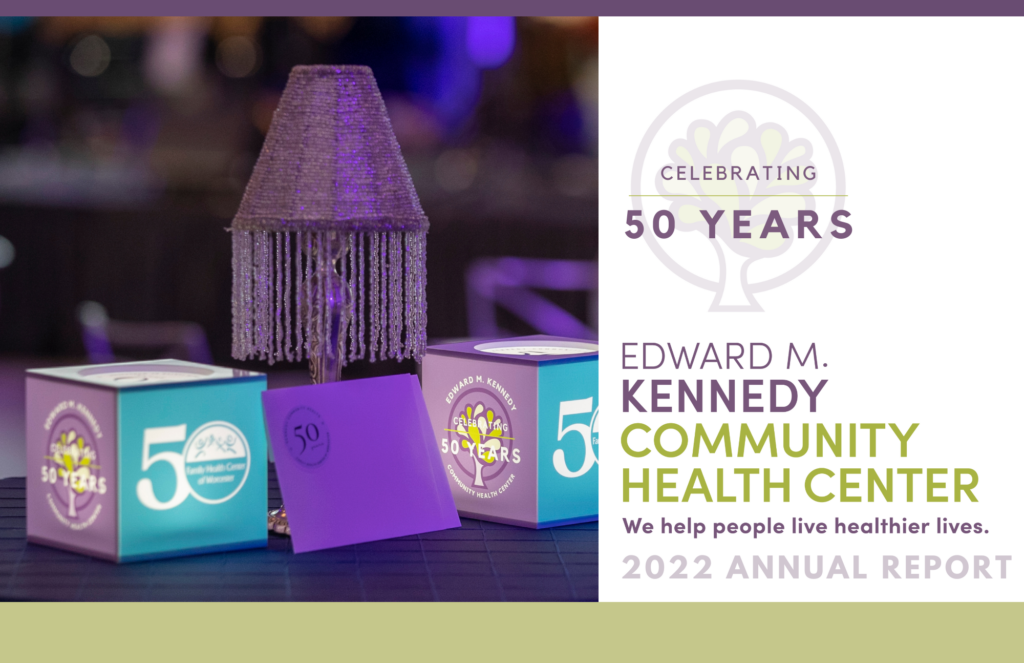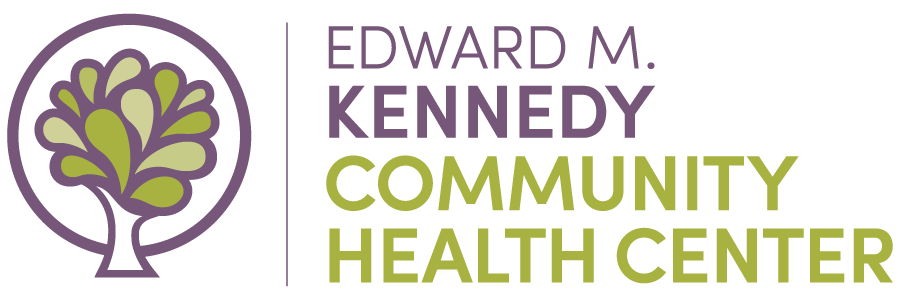About Us
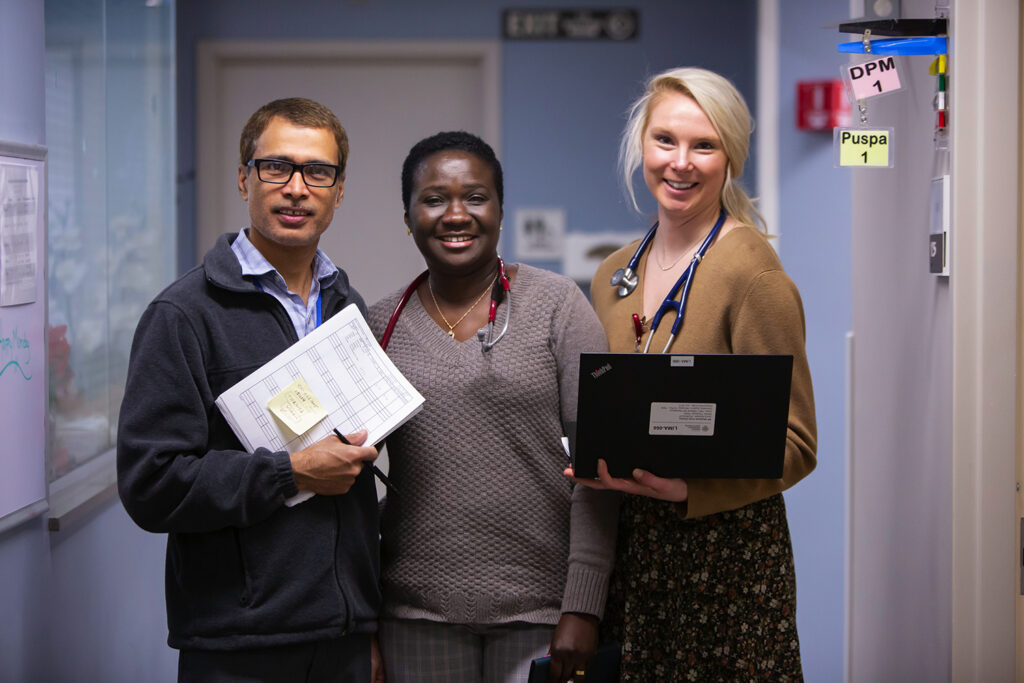
The Edward M. Kennedy Community Health Center (Kennedy Community Health) was founded as the Great Brook Valley Health Center, Inc. (the Valley), in 1972 by seven women who were seeking better access to health care for their families. These women lived in the largest public housing complex in Worcester, Massachusetts and relied on the hospital emergency room for care. As a result, they did not have access to regular, preventive, and primary care services for their families. To change the paradigm, these pioneers founded a corporation, obtained space from the Worcester Housing Authority, and negotiated for a nurse practitioner to come to the Valley.
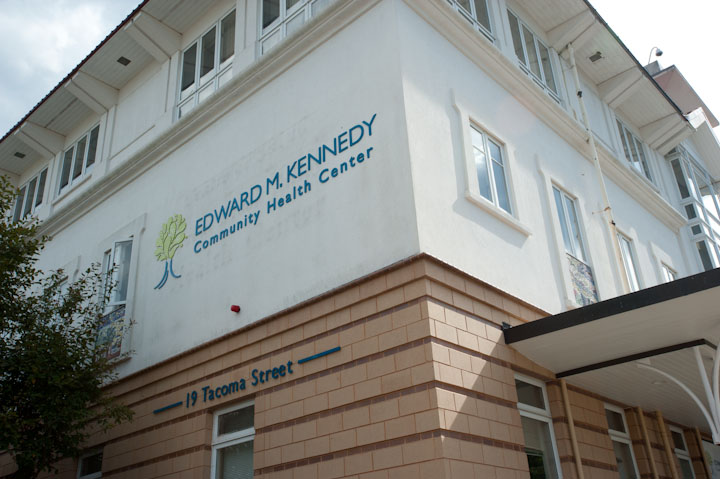
Over time the Health Center grew to meet the increasing demand for medical care from residents of the Great Brook Valley neighborhood and the city of Worcester in general. As needs were identified, staff was hired, funding obtained, new services initiated and new sites launched to better serve the diverse population of Central Massachusetts. This growth included the construction of a new health care facility in 1992, located across the street from the Great Brook Valley public housing complex at 19 Tacoma Street. This flagship medical facility grew exponentially with renovations and expansions to bring behavioral health, dental services, social services, vision services, urgent care and waiting rooms to the site.
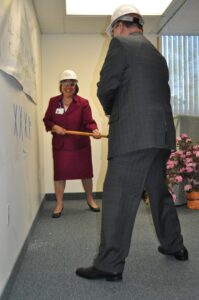
Beyond its roots in Central Massachusetts and in response to a concerted community effort to address the lack of access to primary medical care for low income and uninsured individuals and families in MetroWest, the Health Center opened a new medical center in Framingham in 2004. This medical facility began in a storefront at 19 Concord Street with only four exam rooms and within two years was bursting at the seams. In 2006 and 2007, Kennedy Community Health leased two additional storefronts: one at 72 Union Street for medical services and the other at 32 Concord Street to provide dental care.
Also in 2007, Kennedy Community Health purchased 631 Lincoln Street to house its community programs, nurse triage and eventually our call center. The organization also purchased and renovated its first stand-alone dental site in Clinton in 2000 and opened another one on Norwich Street in Worcester in 2006. Sprinkled throughout this time, Kennedy Community Health has also opened up six School-based Health Clinics, five in Worcester and one in Framingham.
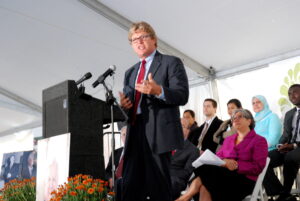
In 2010, through a comprehensive strategic planning process and to recognize the Health Center’s growth beyond Worcester, Great Brook Valley Health Center was renamed the Edward M. Kennedy Community Health Center after the late Senator who is considered by many to be the father of community health centers.
In 2012, Kennedy Community Health consolidated its two small medical sites in Framingham with the opening of a brand-new facility with 14 exam rooms and ample administrative and clinical support staff offices at 354 Waverly Street in Framingham. Through a partnership with the Mass College of Pharmacy and Health Sciences in 2015, optometry services expanded in Worcester and were brought to Framingham in 2018 along with dental services.
Despite the challenges of 2020, Kennedy Community Health was able to pivot quickly by adapting operations to keep access to health care open throughout the communities we served. We emerged from the pandemic fiscally strong never closing any sites or services during this time, positioned to embrace our new normal. In fact, we actually took a major leap forward in 2021, seeing the most patients in our history: 29,043; and making plans to open two new health care facilities.
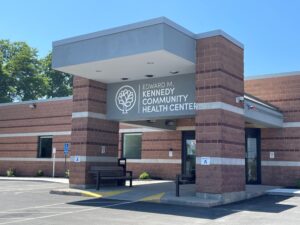
In 2023, Kennedy Community Health opened a new health center in Milford, nearly tripling the size of our original medical site. The larger facility will allow us to increase primary care, behavioral health and other support services and introduce dental, optometry and a discount 340b pharmacy to this growing region.
The Worcester area is also experiencing growth in health care access with the opening in 2023 of our new facility at 605 Lincoln Street. Less than a half mile away from our site at 19 Tacoma Street, the Lincoln Street site houses expanded dental, behavioral health and urgent care programs, freeing up space at our flagship site to develop a full-service primary care center.
Today, Kennedy Community Health serves the residents of Worcester, Framingham, Milford, and the surrounding communities of MetroWest and Central Massachusetts through our four health center sites and six school-based health centers. Currently 32,400 patients of all ages receive care and service through Kennedy Community Health’s family practice model of care, a comprehensive approach to the delivery of quality primary and urgent care, dental care, optometry, pharmacy, behavioral health, substance use treatment and social services, reproductive health, HIV/AIDs treatment and services, medical specialties, gender affirming care, nutrition counseling, laboratory, and health education programs. Kennedy Community Health is certified as a patient-centered medical home by the National Committee for Quality Assurance (NCQA), a model that supports the flow of information among medical teams, coordinating health care visits, utilizing electronic technologies for tracking and errors prevention, and providing follow-up while, most importantly, engaging patients in their care.
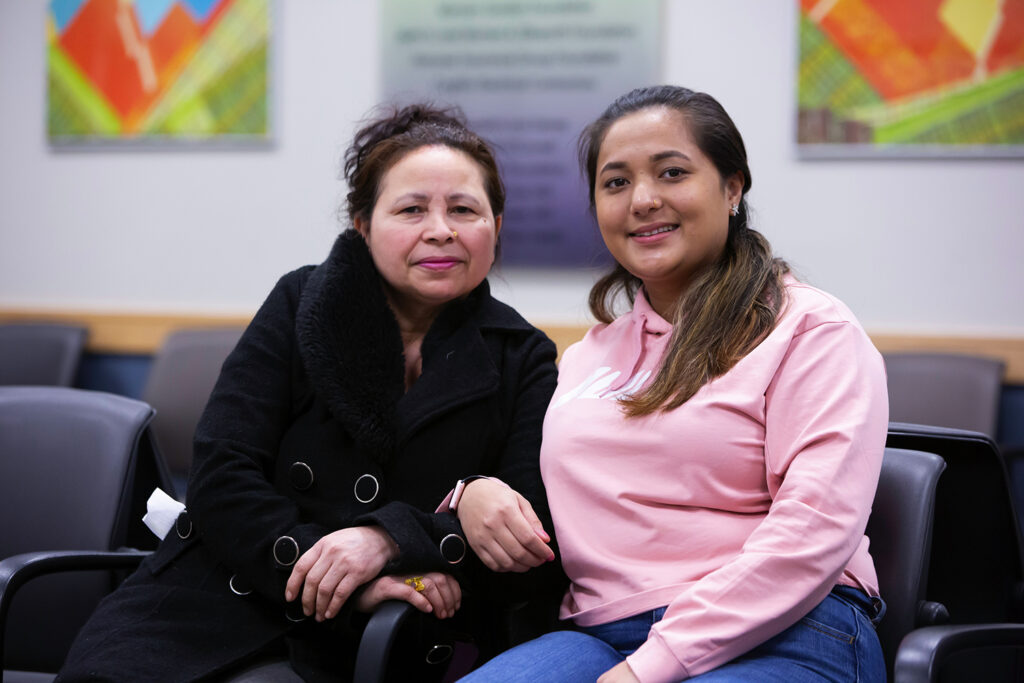
According to the Health Resources and Services (HRSA) Administration Uniform Data System (UDS), in 2022, about 14% of Kennedy Community Health’s patients resided in public housing, or 3,994 patients. Additionally, 90% of Kennedy Community Health’s reporting patient population was considered low income with 29% uninsured, 41% insured by MassHealth, 9% with other public insurance, 7% Medicare, and only 12% with private insurance.
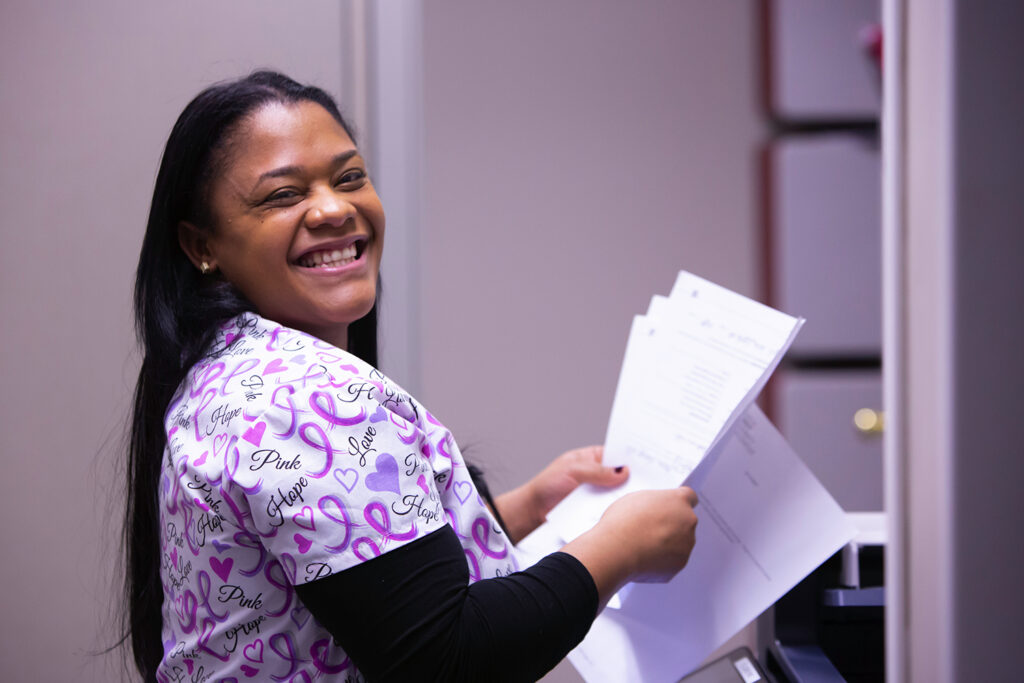
Kennedy Community Health serves a patient population that is ethnically, culturally, and linguistically diverse; 57% of Kennedy Community Health’s patient population self-identify as Hispanic/Latino. Kennedy Community Health’s patients are also racially diverse, of those who reported, 9.1% of patients identified as Black/African American, 2.1% as Asian, 0.8% as Pacific Islander/Hawaiian, 0.2% as American Indian and/or Alaska Native, 33.9% as White, and the remaining 49% of patients identify as more than one race/multiracial. Seventy-one percent (72.2%) of our patient population is best served in a language other than English, speaking a range of 81 languages.
